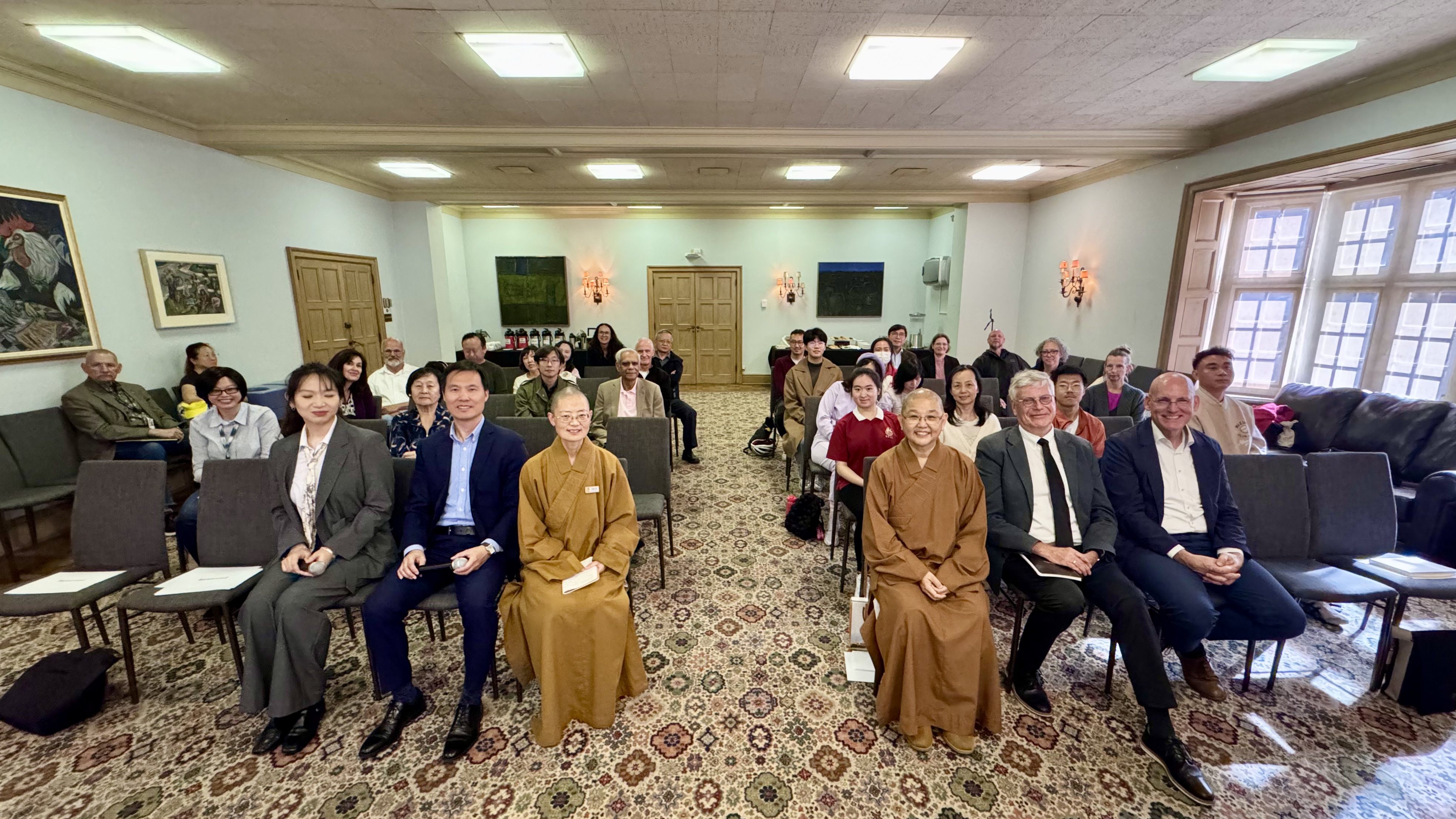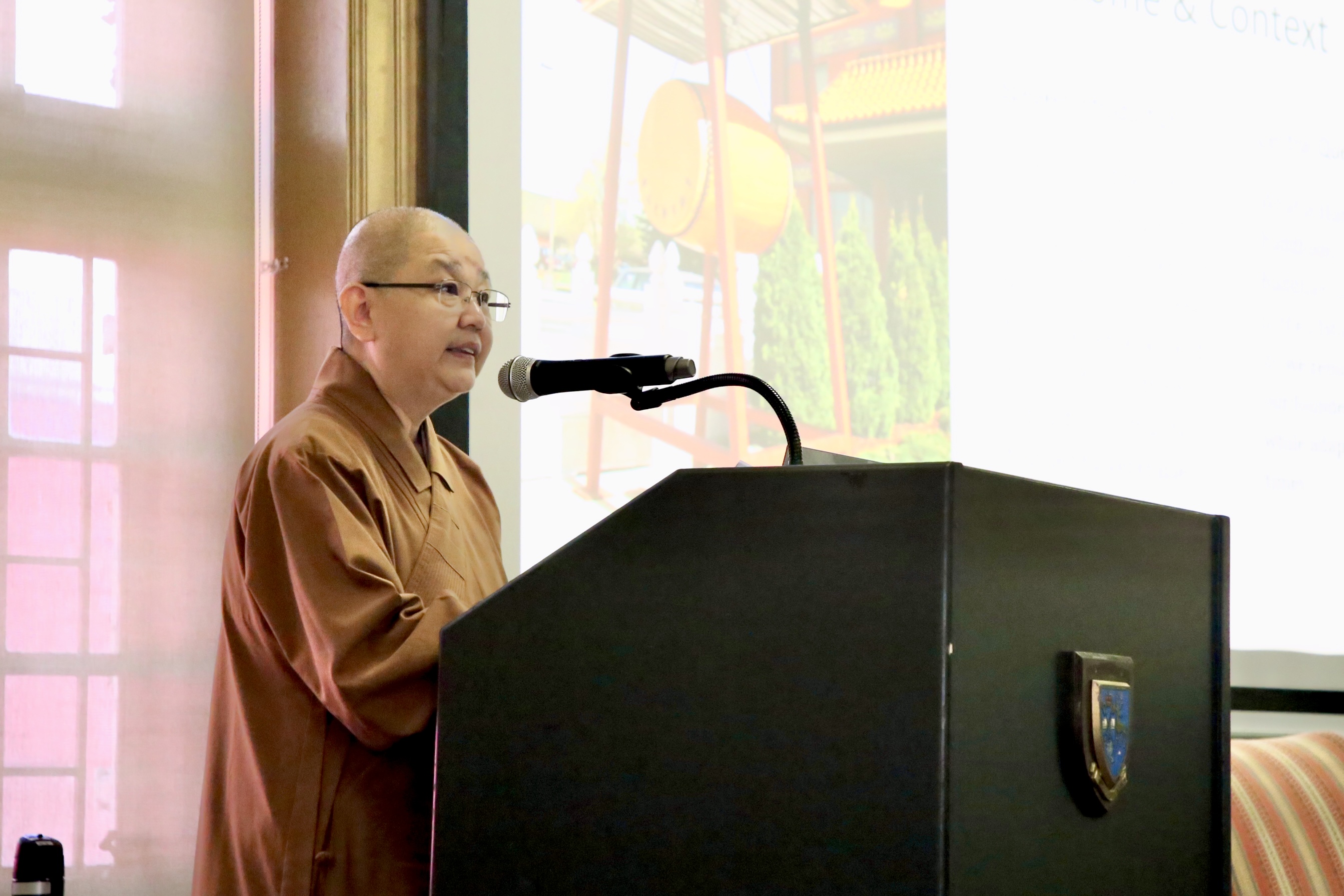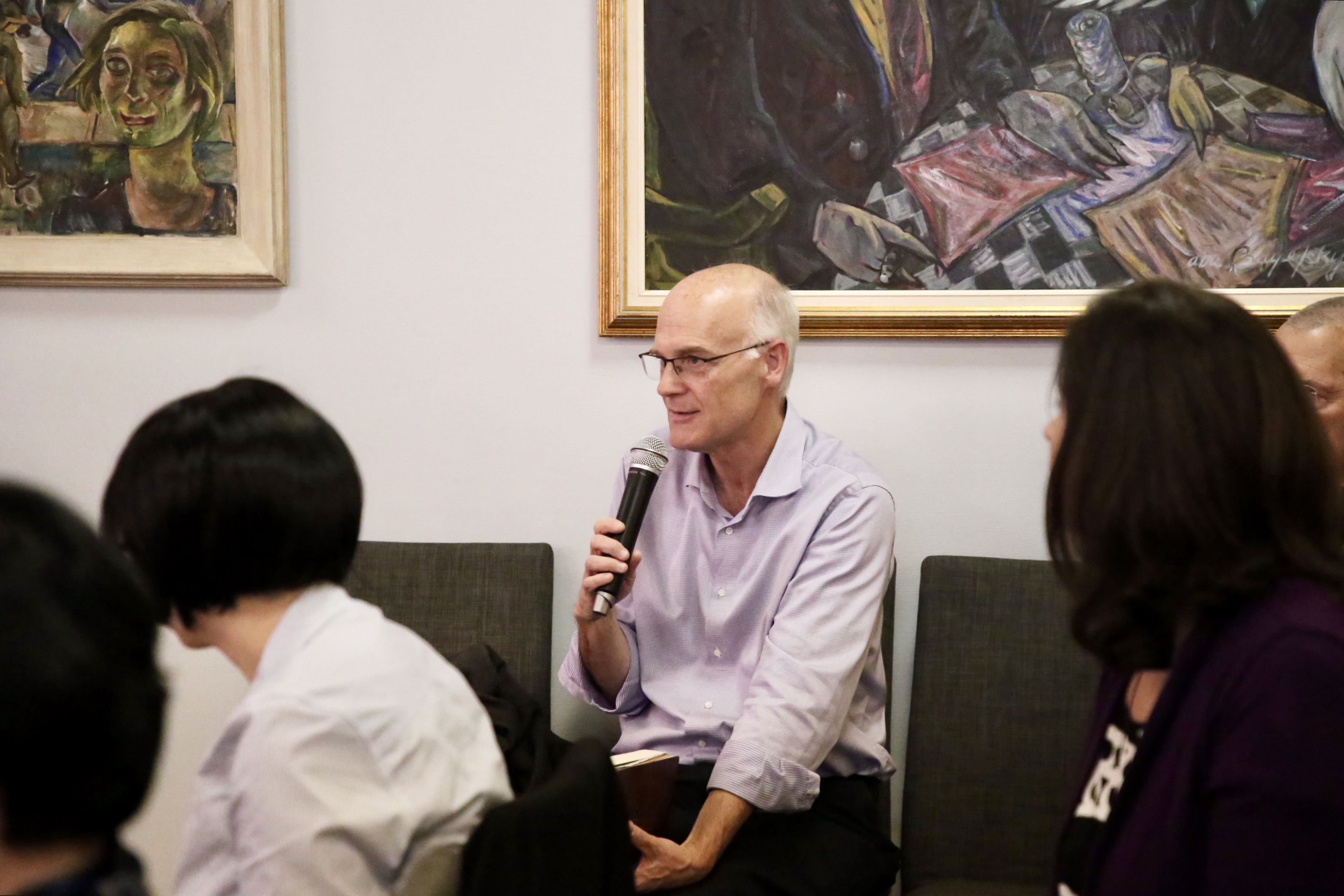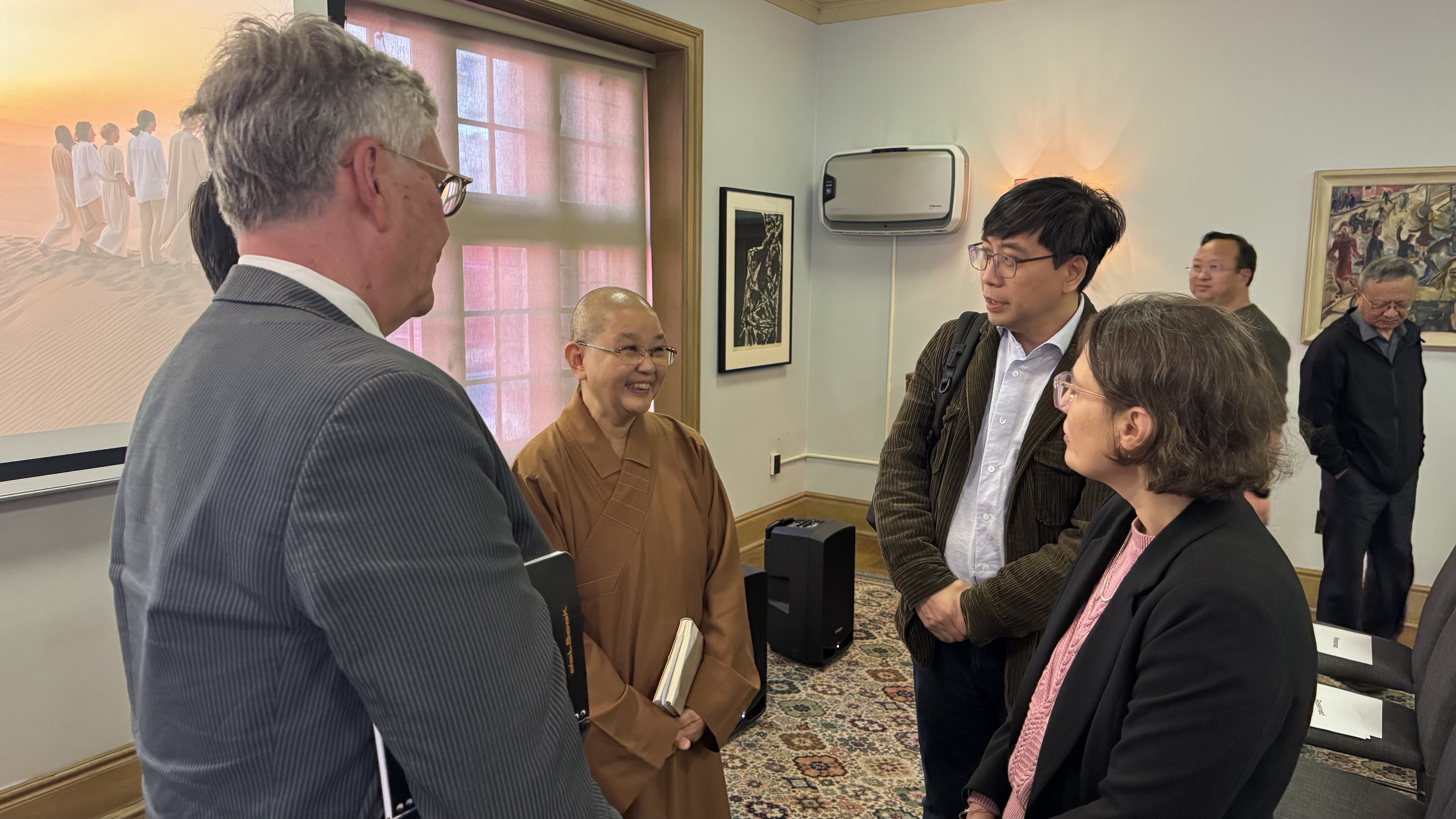%E4%BB%A3%E8%A1%A8%E4%B8%BB%E8%BE%A6%E5%96%AE%E4%BD%8D%EF%BC%8C%E7%82%BA%E8%A6%BA%E5%87%A1%E6%B3%95%E5%B8%AB(%E5%B7%A6)%E6%BC%94%E8%AC%9B%E4%BD%9C%E5%BC%95%E8%A8%80%E4%B8%A6%E7%B5%90%E8%AA%9E%E3%80%82.jpg)
At the invitation of Trinity College, University of Toronto, Venerable Chueh Fan, Abbess of Fo Guang Shan Temple of Toronto, delivered a special lecture on October 8. Drawing from Venerable Master Hsing Yun’s book Humanistic Buddhism: Holding True to the Original Intents of the Buddha, Venerable Chueh Fan explored how faith traditions today face the shared challenge of redefining their roles in modern society. Through the six key frameworks of Humanistic Buddhism, she emphasized that while rooted in daily life, the Dharma also provides transcendental insight—guiding people to find inner peace and spiritual balance amid contemporary challenges. The lecture inspired forty attendees to reflect on how different religions can bring wisdom, light, and hope to the modern world.
This lecture marked the first public event jointly hosted by Trinity College and Fo Guang Shan Toronto since signing an agreement in April to establish the Institutefor Humanistic Buddhist Thought and Practice. Dr. JizhangYi, Interim Director of the Institute, delivered both the opening and closing remarks. Distinguished guests included Professor Nicholas Terpstra, Provost and Vice-Chancellor of Trinity College; Professor Christopher Brittain, Dean of Trinity College; and Ana White, Executive Director of Development and Alumni Affairs.
Venerable Chueh Fan explained that the session was not an academic symposium, but a sharing from the perspective of a Buddhist practitioner. She noted that while Buddhism once distanced itself from everyday life, Venerable Master Hsing Yun revitalized the faith through education,culture, art, and social engagement—bringing Buddhism closer to people’s daily experiences and bridging tradition with modernity.
Through six guiding frameworks such as “Returning to the Original Intent,” “Inherent Dignity and Buddha Nature,” and “Interdependence and Social Responsibility,” Venerable Chueh Fan illustrated how Buddhist teachings can actively serve humanity. True practice, she said, lies not in withdrawal but in living harmoniously within society. Quoting Venerable Master Hsing Yun, she reminded the audience that “education nurtures wisdom, culture enriches the spirit, charity fulfills compassion, and Dharma practice purifies the heart.”
In response to questions from professors and students—including Professor Henry Shiu of Emmanuel College—Venerable Chueh Fan emphasized that genuine cultivation is found in service. By engaging in society and embodying the Three Acts of Goodness, one cultivates both compassion and wisdom, walking the living path of Humanistic Buddhism.
%E4%BB%A3%E8%A1%A8%E4%B8%BB%E8%BE%A6%E5%96%AE%E4%BD%8D%EF%BC%8C%E7%82%BA%E8%A6%BA%E5%87%A1%E6%B3%95%E5%B8%AB(%E5%B7%A6)%E6%BC%94%E8%AC%9B%E4%BD%9C%E5%BC%95%E8%A8%80%E4%B8%A6%E7%B5%90%E8%AA%9E%E3%80%82.jpg)




%E8%88%87%E4%BD%9B%E5%85%89%E9%9D%92%E5%B9%B4%E6%AD%A1%E5%96%9C%E4%BA%A4%E6%B5%81%E3%80%82.jpg)